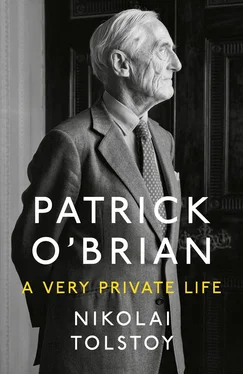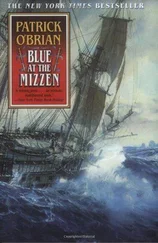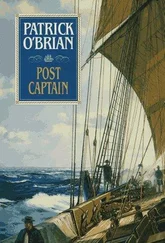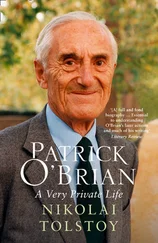The sorry tidings cannot have come as a total shock. In April 1953 Patrick had been informed (presumably by a member of his family) that his father had suffered a stroke, and in the following month Richard passed on a message from Patrick’s sister Nora that ‘your father is ill and has been taken to hospital’. Other allusions show that Patrick continued in regular contact with members of his family, several of whom evinced sympathetic interest in Richard.
Nevertheless, it is clear from my mother’s words that the final departure of this terrifying figure of Patrick’s youth had moved him. In the previous month he had written his short story ‘The Thermometer’, which described the fear and resentment with which he had viewed his harsh and distant parent as a small boy. There are clear indications that, as late as 1949, he had regarded his father’s grim persona as largely responsible for his increasingly paralysing bouts of depression and writer’s block.
Equally, it has been seen that he finally shed this inhibiting factor after settling in distant Collioure, where he managed to recover his equipoise. Nor should ‘The Thermometer’, which I have little doubt provides a realistic picture of his childhood experience, necessarily be regarded as an expression of his continuing feelings for his father, who had for two years languished a helpless invalid. At this stage of his literary career, Patrick continued deeply reliant on personal experience as matter for his fiction.
There were other memories on which he could draw, and death frequently has the effect of diminishing the bad and resurrecting the good. Charles Russ had enthusiastically supported Patrick’s early literary endeavours, negotiating their acceptance by publishers. He penned a glowing introduction to his precocious first novel Caesar , and Patrick in turn dedicated his next book Beasts Royal ‘To my father’. During the troubled days of his late adolescence, he found an apparently contented refuge in his father’s and stepmother’s house at Crowborough in Sussex.
My mother’s ‘poor Patrick’ confirms that Patrick was distressed by the news, since he would not have disguised his true feelings from her. Furthermore, he must unquestionably have been concerned for his stepmother, who had been consistently kind to him as a boy, and of whom he remained extremely fond.
It is important to appreciate Patrick’s reaction to this emotional occasion, not least because it has been misinterpreted to his lasting disfavour. A biography of Patrick devotes several pages of speculation to the event, the gist of which is that he:
never introduced his son to his father. He never spoke of his father to Richard, and he did not even tell Richard now that his grandfather had just died. The amazing thing is that a man of O’Brian’s insight not only was incapable of repairing his relationship with his father but fostered a similar father–son breach in his own house. [3] Конец ознакомительного фрагмента. Текст предоставлен ООО «ЛитРес». Прочитайте эту книгу целиком, купив полную легальную версию на ЛитРес. Безопасно оплатить книгу можно банковской картой Visa, MasterCard, Maestro, со счета мобильного телефона, с платежного терминала, в салоне МТС или Связной, через PayPal, WebMoney, Яндекс.Деньги, QIWI Кошелек, бонусными картами или другим удобным Вам способом.
No evidence is cited to support these unpleasant charges, the burden of which is profoundly misleading. [fn8] Конец ознакомительного фрагмента. Текст предоставлен ООО «ЛитРес». Прочитайте эту книгу целиком, купив полную легальную версию на ЛитРес. Безопасно оплатить книгу можно банковской картой Visa, MasterCard, Maestro, со счета мобильного телефона, с платежного терминала, в салоне МТС или Связной, через PayPal, WebMoney, Яндекс.Деньги, QIWI Кошелек, бонусными картами или другим удобным Вам способом.
Poverty and distance, coupled with wartime travel conditions, might (we do not know) have precluded Patrick’s taking his son to Crowborough before his departure with my mother to Wales in 1945, when Richard was seven. While little communication appears to have passed thereafter between Patrick and his reclusive parent, Patrick’s siblings have confirmed to me that Charles Russ rarely corresponded with any of his children or grandchildren.
Although it is not impossible that Richard’s grandfather never communicated with him, other members of the family were concerned with the boy’s welfare. ‘Grandmother Russ’ (Patrick’s stepmother Zoe) visited Richard and his mother at their flat in Chelsea, as did Uncle Victor and other relatives. Richard unselfconsciously passed on family news from them to his father in France, and it is evident that there were no ‘forbidden areas’ in family discussions.
Unfortunately, Patrick was unable to travel to England for his father’s funeral, almost certainly in consequence of acute lack of funds. At the time of Charles Russ’s death, my mother wrote in her diary: ‘Despairing thoughts of no money to meet car’s lettre de change at end of month.’ However, Patrick’s brother Bun, a successful lawyer in Canada, had flown over to attend. It seems that Bun (as he certainly did on other occasions) generously paid for Patrick’s journey and hotel room in Paris, since my mother’s accounts record only trifling expenditure connected with what must have been a costly expedition.
It is frankly incredible to suppose that Patrick kept all this secret from Richard. Why on earth should he have done so? Besides, secrecy would have been all but impossible, closeted as the three of them were in the tiny flat in the rue Arago. The further charge that Patrick ‘fostered’ a breach with Richard himself will in due course be seen to be demonstrably unfounded, and confirms the extent to which such accusations represent no more than ill-natured conjecture.
A month before news arrived of his ailing father’s stroke, Patrick told my mother of an idea which had come to him of writing his ‘Chelsea novel’. More and more gripped by the concept, in May she observed ‘P. internally working on next novel’, and by June ‘P. is too deep in new novel to go back.’ It seems unlikely that it was coincidence that led Patrick to turn to such an introspective theme at a time when he was becoming aware that the once-daunting parent figure was slipping from the scene. Was he unconsciously afraid that his father’s death might deprive him of an identifiable explanation – or even pretext – for his continuing inability to realize his ambition?
In the event Patrick made little attempt to tutor Richard during his long stay at Collioure in 1954. Not only was the boy enthusiastic enough about the subjects he had chosen to apply himself to without any necessity for supervision, but throughout this time his father had become immersed in writing The Golden Ocean . My mother, who taught her stepson French on the beach, was delighted to learn that ‘R. gets excellent reports on his course.’
With the arrival of warm weather, much time was spent beside the sea, taking long walks, exploring neighbouring places of interest such as the magnificent castle of Salses north of Perpignan, and entertaining a stream of friends. Richard began learning to drive, but sadly expenditure on the purchase of the vineyard eventually compelled the sale of the much-loved deux chevaux . On 25 April my mother drove to Perpignan, sold the car for 210,000 francs (about £200), in a rare fit of indulgence enjoyed ‘an immense lunch’ at the Duchesse de Berri restaurant, and took the train home. As has been seen, she and Patrick went straight to the Azémas, and paid the full price of the vineyard. ‘ Vous voilà propriétaires définitifs ,’ declared Madame Azéma. My mother triumphantly inscribed the joyous words in the margin of her diary.
Читать дальше












